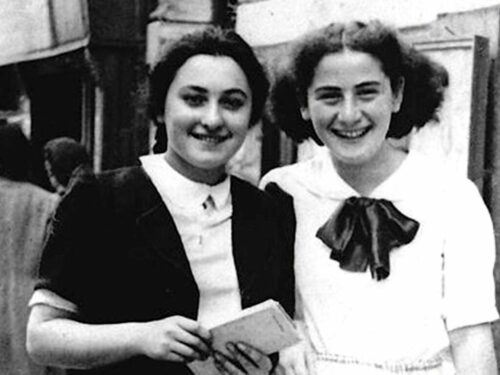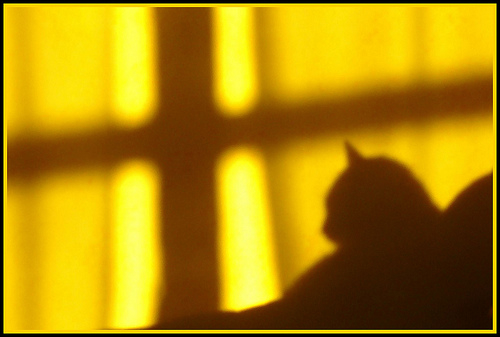One Fall Night
Now that we’ve run the edge of a perfect circle,
we become recurrence. From within its own absence,
the wind has picked up now—how sudden the advance
of this scheming season: doors shudder against the winds,
fields already lay bare but for those unharvested remains
still tendrilled to ideals of rotund abundance.
Once, we too were tethered to a timeless abundance,
an encompassing now which ruled our tightly drawn circle.
No movement beyond that present—nothing remained
from a yesterday, or for a tomorrow. Time’s absence
removed us from the grief and hope that now wind
themselves tighter and tighter with each hour’s advance.
Not yet free, could we have known in advance
just how our first unthinking grasp of the abundance
would trigger time? And evening. And morning. The four winds
carried us far from that primordial circle.
We drifted—evening, morning—and sculpted new absence
in our own image. Then, discarding the remains,
we fled. Never to return. For us, all that remained
was rootlessness. Never to advance
beyond our first love of loving. We made absence
our god, and we lamented our emptied abundance.
And now, every circle is a vicious circle.
And now, autumn’s hour is again. Grinning winds
gorge themselves on barren fields, and other winds
still wait in the hills to claim their share of our remains.
We are safe. Safe, we move within our warm circles,
bolstered and fortified against the winds’ advance,
repeating ourselves and others, feigning abundance—
this too shall pass, we are safe now, you know, absence
makes the heart grow there but for the grace of absence—
repeating, cowering within our wind-
struck shelters, we lean and summon abundance
back from autumn’s ambush, but find that nothing remains
after yet another thousand years’ advance
and again we’ve run the edge of a perfect circle.
And abundance is last night’s grapes. Still chilled, they remain
in the bowl by the window, glistening against dawn’s advance.
You. I. Our absence. One fall night. Encircled.
M. Salomon
Gari Light’s translation to Russian follows:
Однажды, Осенней Ночью
Ну что ж, мы прошли до конца совершенного круга.
и стали своим воссозданием. Из глубины своего отсутствия
ветер усилился – как неожиданно вдруг наступленье
коварного времени года: и содрогаются двери от прихоти ветра,
стали нагими поля, кроме останков ненужных частиц урожая,
все ещё вьющихся, словно стремящихся в круг изобилия.
Было, мы тоже однажды зависимы были от тех изобилий,
где их охват отрицал очертания круга.
Вето для нынешних резких движений – и ничего не осталось
уже от вчера для сегодня. Это отсутствие времени
нас отчудило от робкой надежды, и горя тех, что на взводе,
себя обрекли на тесные стрелки в прошествии каждого часа.
Ещё не свободны, могли ли мы заблаговременно ведать,
как наше первое чувство того изобилия
определит ощущение времени? Вечер. И утро. Ветер в четыре
руки нас отнёс далеко от того изначального круга.
Мы дрейфовали – вечером, утром – и даже слепили в образе нашем
подобие новой разлуки. Ну а затем избавляясь от жалких остатков,
Просто исчезли. Вполне безвозвратно. Все что осталось,
стало обычным безродьем. Прогресса не будет
за рамки влюбленности первой любови. Это отсутствие
нам божеством показалось, мы горевали об изобилии ушедшем.
Нынче любой из кругов станет кругом порочным.
Нынче и осени час снова к нам подобрался. Ветра гримасы
себя наполняют пустыми полями, а ветры иные
всё ещё ждут на холмах времена где им выданы наши останки.
Мы в безопасности. В наших согретых для жизни пространствах,
тех, что надежно укрыты от наступления ветра,
мы повторяем себя и других, в изобилии представив –
что минует нас чаша, что мы спасены, знаете это отсутствие
заставляет сжиматься сердце, кроме как в благодати отсутствия
повторяя, внутри наших атакованных ветром –
убежищ, мы склоняемся и вызываем изобилие
из той самой осенней засады, но осознаём, что ничего не осталось
после завершения очередного тысячелетия,
когда мы вновь достигли края совершенного круга.
Вот изобилие виноградин минувшей ночи. Они по-прежнему охлаждены
в блюде возле окна, блестят на фоне приближающегося рассвета.
Ты. Я. Наше отсутствие. Одной осенней ночью. В окружении.
–М. Саломон, перевод Гари Лайт











